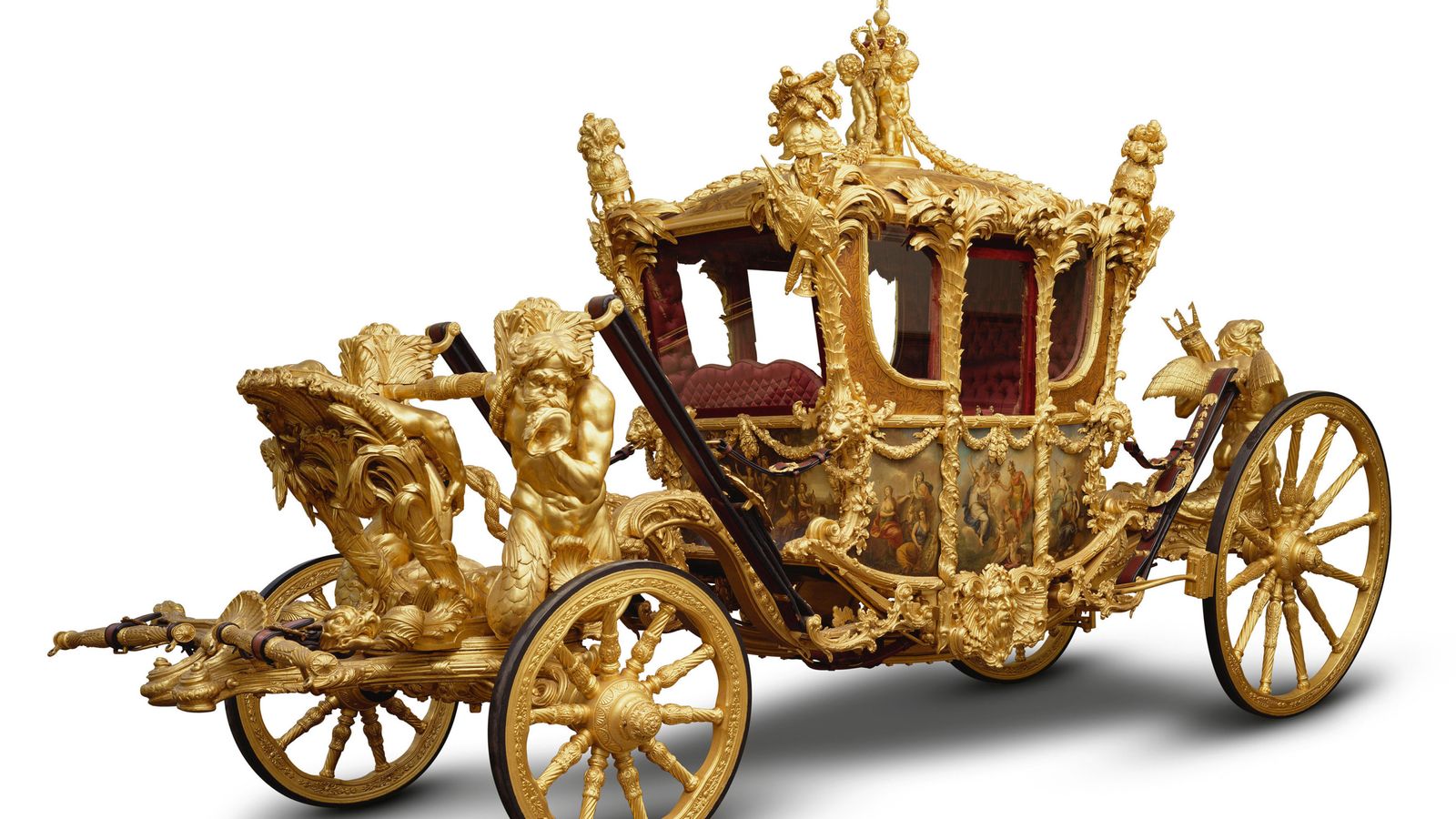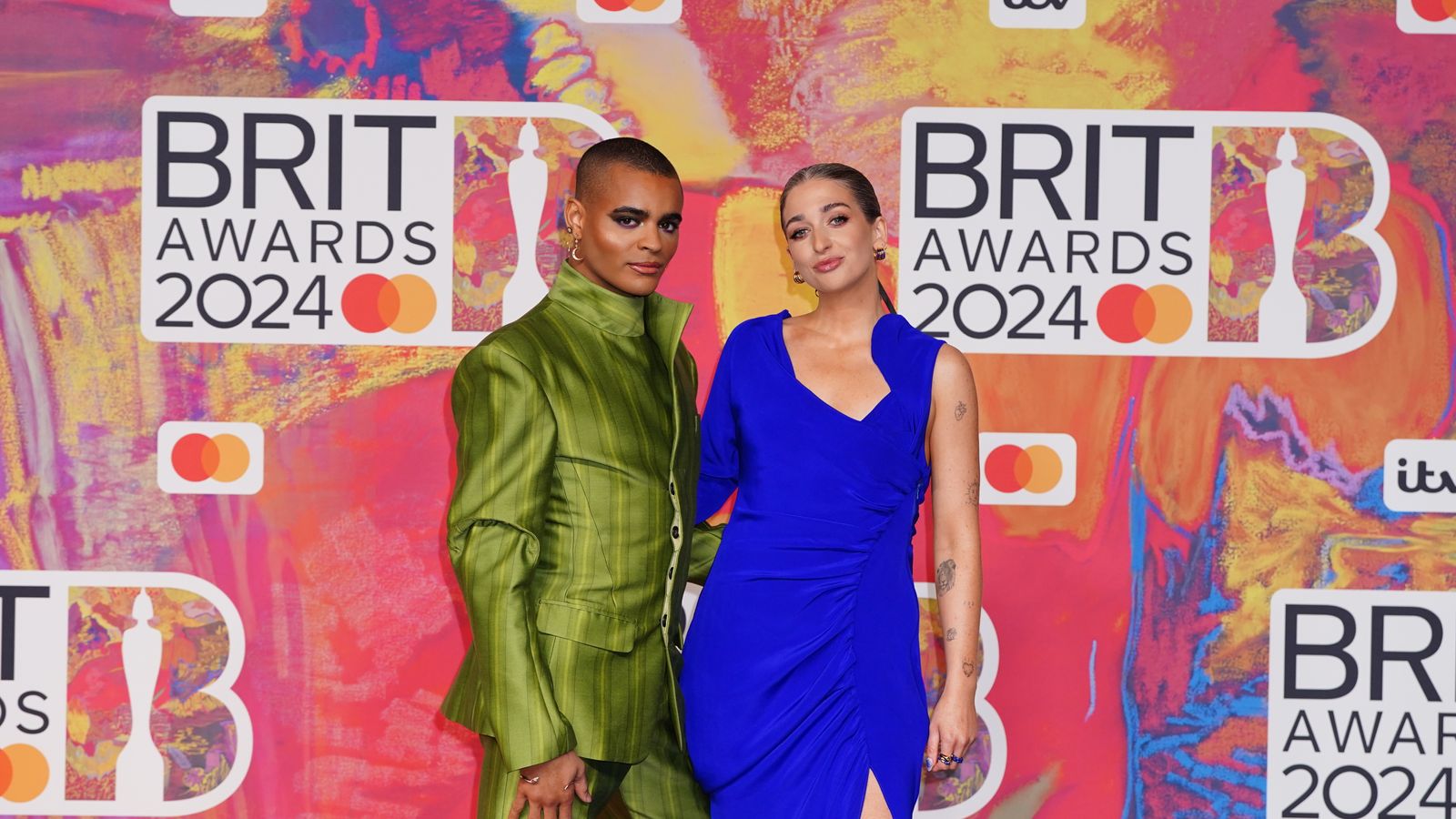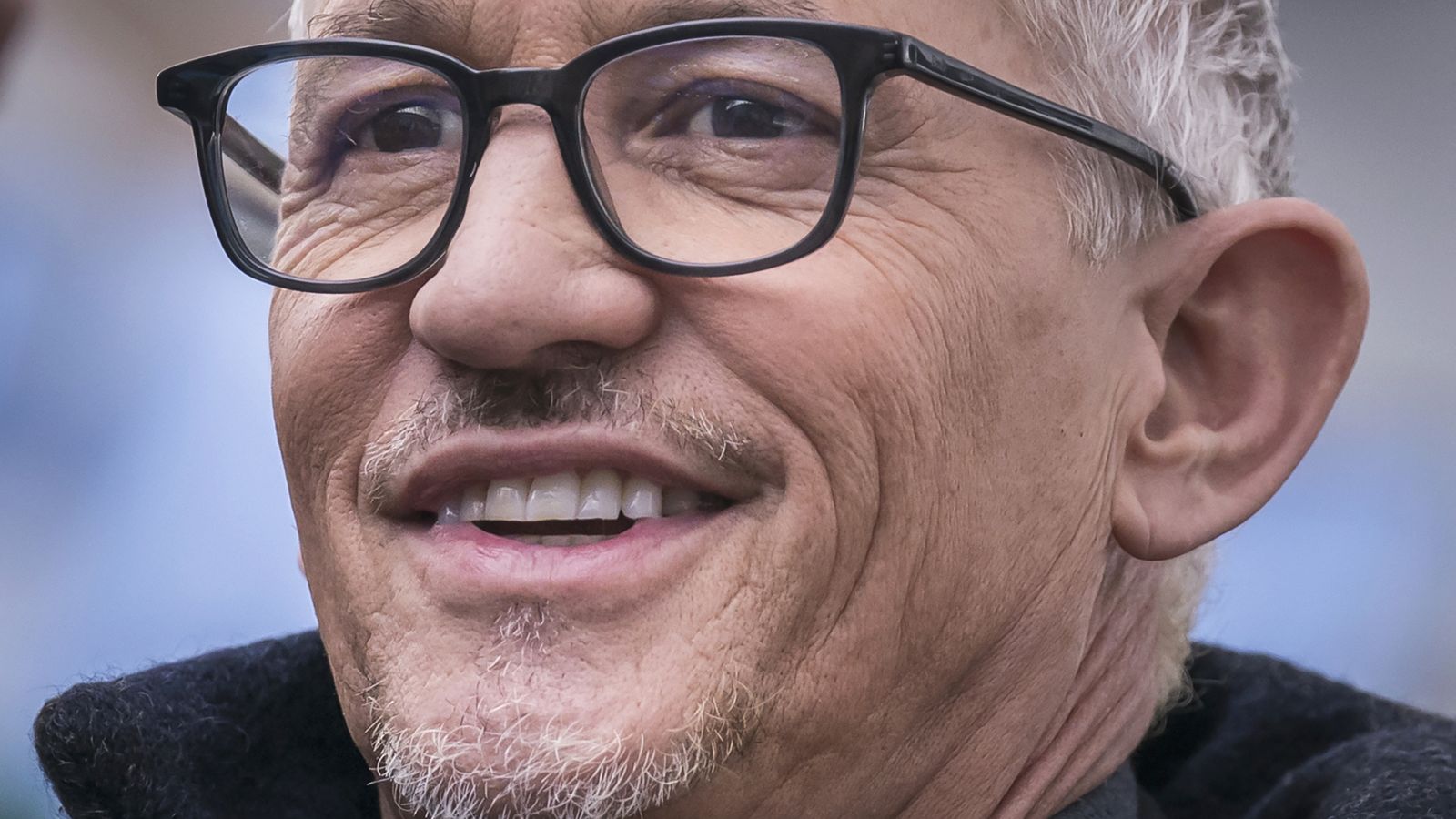The route the King and Queen Consort will take to the coronation has been revealed – involving two gilded coaches, one of which has air conditioning and shock absorbers.
The other one is uncomfortably suspended on leather straps, weighs four tonnes, and can move only at walking pace, pulled by eight horses.
Charles and Camilla will take the 1.3 mile outbound journey from Buckingham Palace to Westminster Abbey in the Diamond Jubilee State Coach which was first used by Queen Elizabeth at the State Opening of Parliament in 2014.
It is the newest coach in the Royal Mews.
On the way back, taking the same route, they will be in the 260-year-old Gold State Coach, which the Queen used both ways for her coronation in 1953, famously describing the bumpy ride as “horrible”.
It is thought the King and Queen Consort may have chosen to limit the use of the older coach because both have suffered from back pain, though the palace declined to comment.
Unlike the Queen at her coronation, they will take the same route both ways.
Accompanied by The Sovereign’s Escort of the Household Cavalry, they will travel down The Mall via Admiralty Arch, take the south side of Trafalgar Square, then go along Whitehall and Parliament Street, take the east and south sides of Parliament Square to Broad Sanctuary, before arriving at the Abbey.
The coronation service on Saturday 6 May will begin at 11am.
“The carriages chosen reflect the smaller procession to the Abbey and the larger procession back to Buckingham Palace,” a Buckingham Palace spokesperson said.
“They were the personal choice of Their Majesties.”
Read more:
What the crowns, swords and orbs mean
Official coronation emoji unveiled
The route is a tried and tested one, having been used for many royal occasions.
Sally Goodsir, curator of decorative arts at the Royal Collection Trust, said: “The Gold State Coach will be the centrepiece of the much larger procession from Westminster Abbey back to Buckingham Palace on coronation day.
“It weighs four tonnes and because of that it can only be used at walking pace which really adds to the majesty and stateliness of this great royal procession.”
The King’s coronation procession in the Gold State Coach will feature hundreds of members of the Armed Forces from the UK, the Commonwealth and the British Overseas Territories, as well as the Sovereign’s Bodyguard and Royal Watermen.
The late Queen’s outward procession was 1.6 miles long but her return procession was five miles, taking her down Piccadilly, along Oxford Street and Regent Street and Haymarket.
It took two hours to complete, featured 16,000 participants and was designed to allow her to be seen by as many people as possible.
The coronation regalia from the Crown Jewels that will be used during her son’s coronation service has also been confirmed.
It includes the Sovereign’s Orb, the Golden Spurs, bracelets known as Armills, two maces, five symbolic swords, the Sovereign’s Ring, the Sovereign’s Sceptre with Cross and the Sovereign’s Sceptre with Dove.
Camilla will be crowned, as previously announced, with the modified Queen Mary’s Crown, but she will also hold the Queen Consort’s Rod with Dove – despite the controversial rod being made from ivory.
The piece is said to symbolise equity and mercy, and the dove, with its folded wings, represents the Holy Ghost.
Invites to the coronation confirmed Camilla will be known as Queen Camilla after the event, with the consort part of her title – used to differentiate her from Queen Elizabeth II – being dropped once her husband has been crowned King.
Camilla will also hold the Queen Consort’s Sceptre with Cross, which was originally made for the coronation of Mary of Modena, Queen Consort of James II, in 1685 and is inlaid with rock crystals.
She will receive the Queen Consort’s Ring – a ruby in a gold setting made for the coronation of King William IV and Queen Adelaide in 1831, and used by three further Queens Consort – Queen Alexandra, Queen Mary, and the Queen Mother.
Charles will be crowned with the 17th-century St Edward’s Crown which has been resized to fit his head.
The King will switch it for the lighter Imperial State Crown at the end of the ceremony, as is the custom.
As part of the celebrations, the palace has also announced a new emoji – a motif of the St Edward’s Crown.






